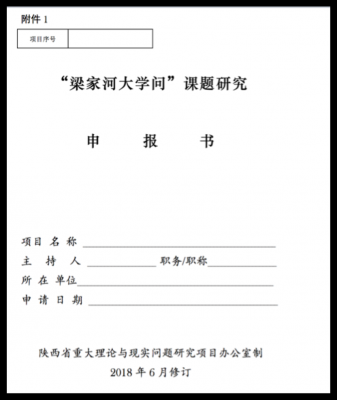At a seminar in Beijing last week, Liu Yadong (刘亚东), the editor-in-chief of a newspaper published by the Ministry of Science and Technology, warned in a public speech that China risked a crisis of over-confidence by constantly hyping its achievements and capabilities. Liu’s remarks, and the positive response from many quarters, including the Global Times newspaper, typically outspoken in its go-China nationalism, are a reaction in part to alarm and pushback from the West over China’s boldly stated ambition to lead the world in key technology sectors by 2025.
But the genie of hype and triumphalism will not be so easy to coax back into the lamp. Hype, after all, is at the heart of Xi Jinping’s leadership in the so-called “New Era” — and of the manufacture of legitimacy by the Chinese Communist Party of which he is “core.”
In recent days, even as the chatter over Liu Yadong’s remarks was fresh, we had further illustration of just how deeply the atmosphere of worship surrounding Xi Jinping is affecting scholarship in China. This came in a notice posted by the Shaanxi Academy of Social Sciences to its official website, calling for submissions for new research projects dealing with the “Great Teaching of Liangjiahe (梁家河大学问).

For those unfamiliar with the significance of Liangjiahe, the village where Xi Jinping spent seven supposedly formative years as a sent-down youth during the Cultural Revolution, I recommend Chris Buckley’s wonderful story last fall in the New York Times. The story of Xi’s time in Liangjiahe has become the most basic foundation of the myth of Xi, of a politics of adoration built atop a narrative of sacrifice and hardship, in a place where Xi is imagined to have set down deep roots among the common people.
On this issue, I want to hand the microphone over to Guo Yuhua (郭于华), a highly respected professor of sociology at Tsinghua University, who made a smoldering post yesterday to her WeChat public account addressing the research call from the Shaanxi Academy of Social Sciences. But first, here is just a bit of the text from that call:
In order to further deepen the research of the great teaching of Liangjiahe, and in order to understand the foundation and source of General Secretary Xi Jinping becoming the core of the Party, commander of the army and leader of the people, and the originating context and logical fountainhead of Xi Jinping Thought of Socialism With Chinese Characteristics for the New Era, steadily enhancing the “Four Consciousnesses,” and making firm the “Four Confidences,” the Shaanxi Academy of Social Sciences has decided to undertake topical research on the “Great Teaching of Liangjiahe” (梁家河大学问).
The call offers a list of possible topics for new projects, and makes clear that budgets will be determined once project proposals are accepted through an “impartial, equitable and competitive” process. Applications are to be sent to Office 210 of the Shaanxi Academy of Social Sciences on Xiaozhai Road East in Xi’an, just a short walk down the street from the Shaanxi History Museum.
Our translation of Guo Yuhua’s WeChat post follows.
Topics of Splendor (伟光神创的课题)
By Guo Yuhua (郭于华)
From the WeChat public account Yuhua’s View on Society (于华看社会)
When I first saw that the Shaanxi Academy of Social Sciences had issued a call for research projects on “The Great Teachings of Liangjiahe (梁家河大学问), I thought for sure this was some sort of spoof. I was entirely prepared to laugh. But once I read through all of the materials explaining the process, with entries such as “topic direction” (选题方向), “application requirements” (申请条件), “research fees” (研究经费), and even “application acceptance” (申请受理) and “method of contact” (联系方式) — and once I came across other such notices from universities across Shaanxi province — I came to realize this was no joke.
After reading carefully and working things out, I realized the problem was my own shallowness. With a better understanding now of the key topical points, the following themes emerge:
A Great Period of Time (伟大的时间):
“Seven years” (七年) has now become a catchphrase. Among the topics listed under “topic selection,” we can note that topics 1 through 7 all begin with the phrase “[During the] seven-year period as a sent-down youth in Liangjiahe” (梁家河七年知青岁月), and this seven-year period is closely tied up logically with “[Xi Jinping] Thought of Socialism With Chinese Characteristics for the New Era” (新时代中国特色社会主义思想), with “the development thought of [placing] the people at the center” ( 以人民为中心的发展思想), with “the idea of ecological civilization” (生态文明思想), “the thought of three industry integration for the new era” ( 新时代三产融合思想), “the thought of a decisive war on poverty in the new era” (与新时代脱贫攻坚思想), ”the strategic thought of rejuvenating the countryside in the new era” (新时代乡村振兴战略思想), and “the thought of grassroots Party building in the new era” (新时代基层党建思想). All of this demonstrates that seven years is now regarded [by the CCP] as a great period of time (伟大的时间段), a period critical to Chinese history if not even world history. It is the time period, we can say, in which “time began”!
A Brilliant Place (光辉的地方):
“Liangjiahe” (梁家河) is of course also a keyword,” and none of the topics provided can depart from this place. It is related to what they are calling “jia-style and jia-teaching” (家风家教), and “scientific content and the values of the era” (科学内涵和时代价值), and connected also to “spiritual nutrition and the building of spirit” ( 精神养分和精神塑造). It is a “great teaching” formed from the hybrid of “China’s excellent traditional culture” ( 中华优秀传统文化) and “red cultural genes” (红色文化基因).
To put it more directly, Liangjiahe is a place deserving of resplendence!
A Sacred Leader (神圣的领袖):
The period of time and this place all center on the core, on the commander (统帅), on the leader (袖的). Needless to say, their resplendence cannot outshine the sacred light of the leader. This goes without saying.
The Topic of Innovation (创新的课题):
This set up of topics can be referred to the tradition of the unprecedented (空前绝后), the idea that here no ancients tread (前无古人), and none that follow can possibly exceed. Oh, what greatness! Oh, what mightiness! What boundless and unlimited creativity! How fully it displays the spirit of the social sciences under Socialism with Chinese Characteristics for the New Era. For this, we can only offer our enthusiastic “likes”!
June 26, 2018





















